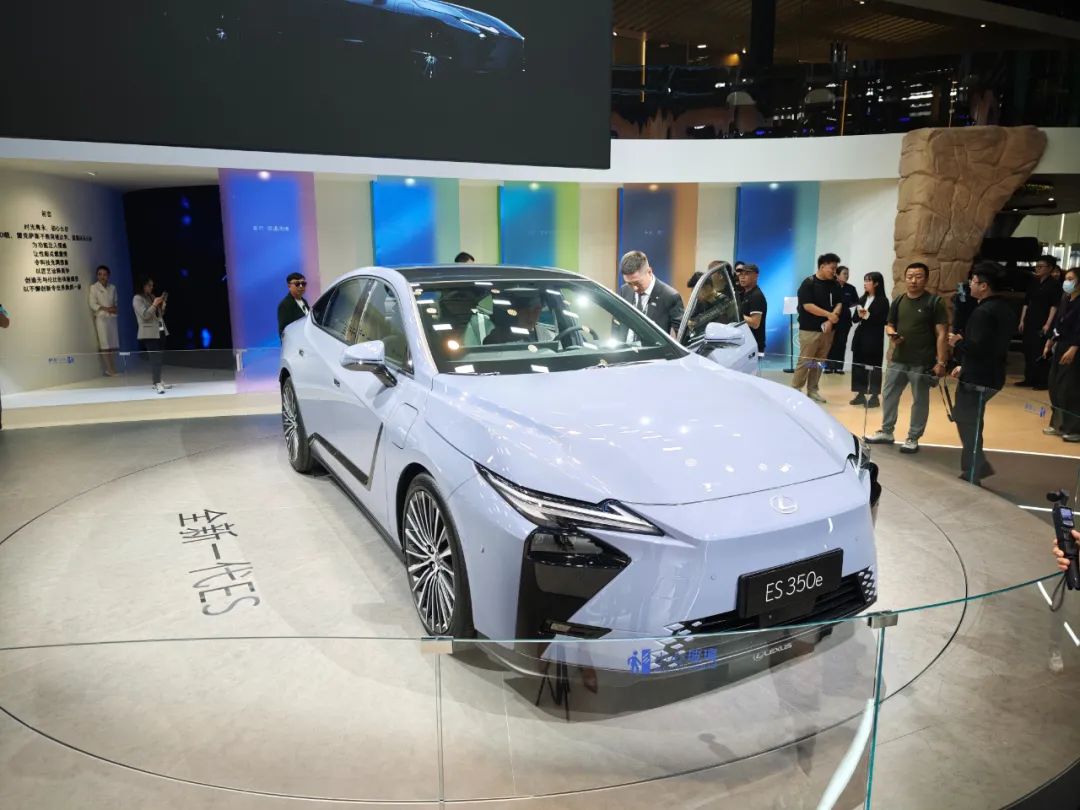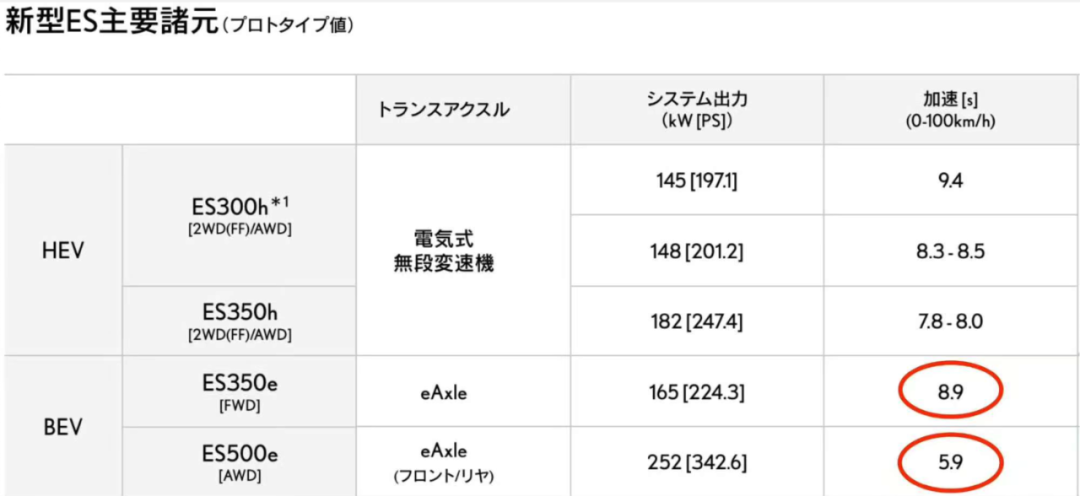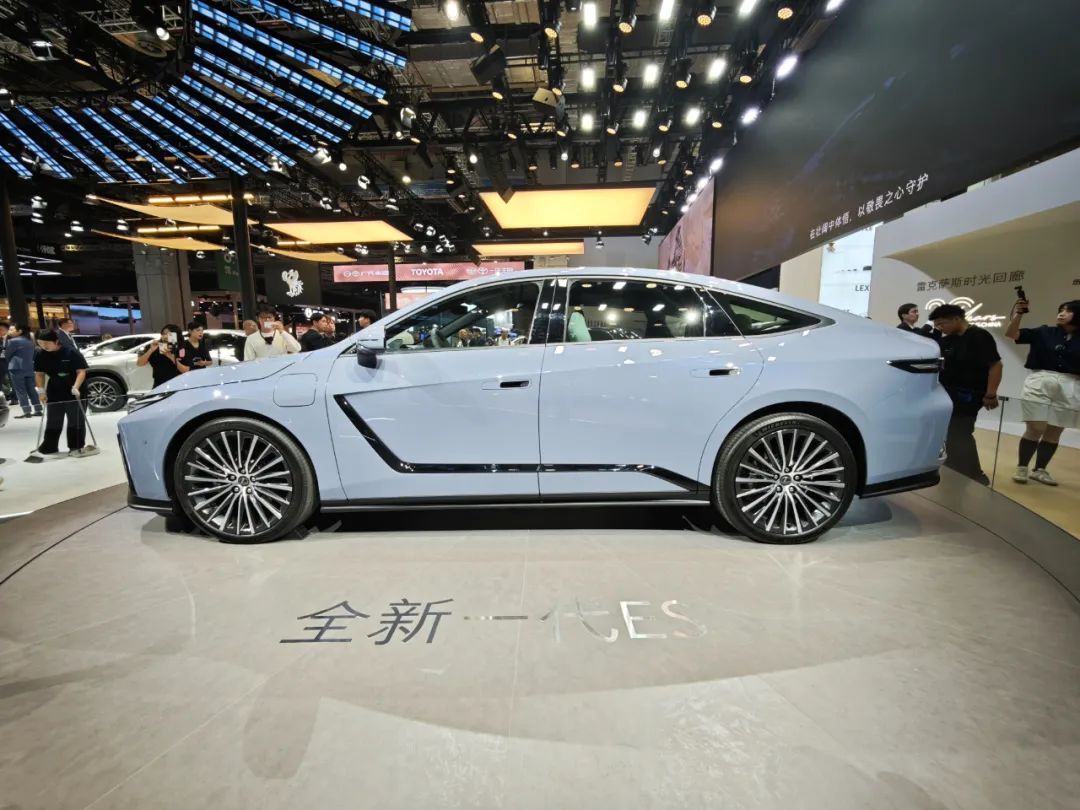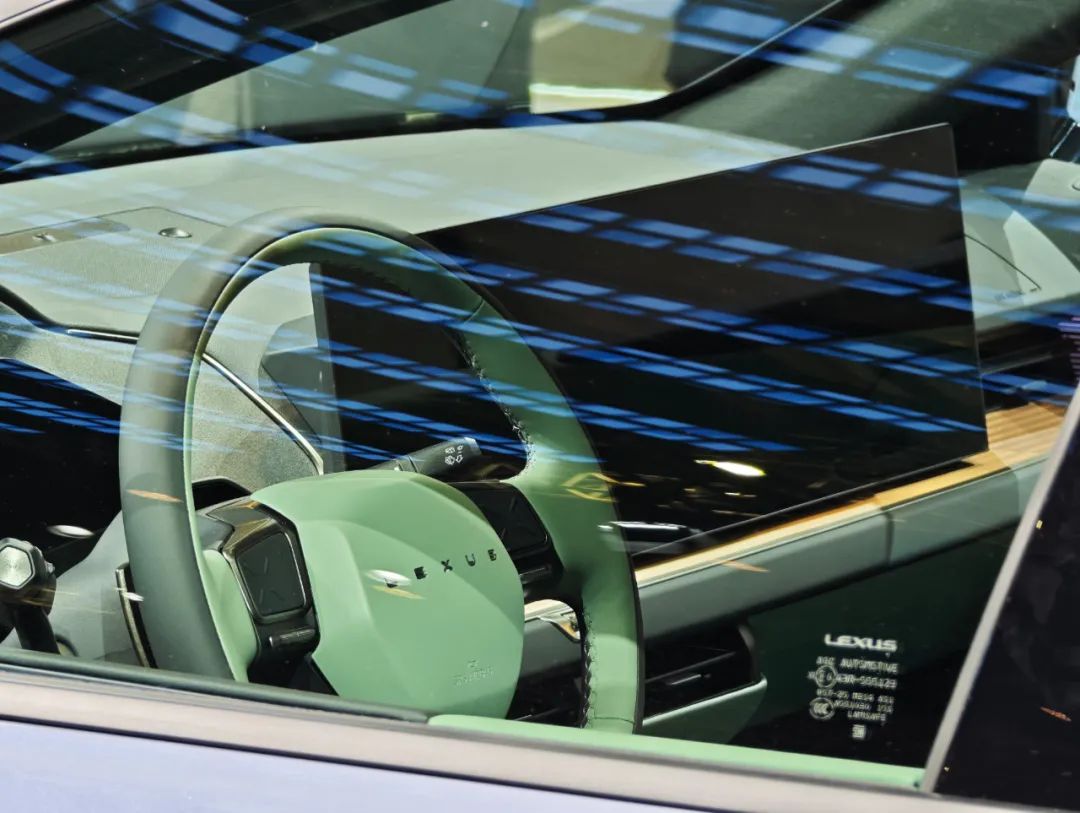Lexus Electric Cars Fail to Wow Even the Biggest Japanese Car Enthusiasts
![]() 04/26 2025
04/26 2025
![]() 504
504
Source: YuanAuto
At the 21st Shanghai Auto Show, which kicked off on April 23, Lexus garnered significant attention, albeit for the wrong reasons.
"Lexus is finished. What is this they're promoting?"
"To be honest, I've been staring at this car all morning, and I still can't wrap my head around it..."
"The new Lexus ES has finally been released, but after such a long wait, it's a major disappointment. The design looks like it was hastily pieced together."
A search for "Lexus ES" on Weibo reveals that this new model has gone viral. While there are some voices praising the all-new ES, there are clearly more expressions of confusion, particularly regarding its design, which has even elicited complaints from influential figures in the automotive industry who are avid fans of Japanese cars.

However, aesthetic appeal is inherently subjective. In contrast, the hardware specifications of the all-new ES are more "straightforward."
YuanAuto learned from Lexus booth staff that the all-new ES will feature pure electric models for the first time, including not only the ES350e on display but also the higher-spec ES500e. The more powerful ES500e is a dual-motor, four-wheel-drive model boasting a combined power of 252kW and a 0-100km/h acceleration time of 5.9 seconds. The entry-level ES350e, on the other hand, is a single-motor, front-wheel-drive model with a motor power of 165kW and a 0-100km/h acceleration time of 8.9 seconds.

It is often said that in the new energy era, power is the least valuable commodity. Judging by the all-new ES, Lexus strongly disagrees with this sentiment. For comparison, the BYD Han L, starting at 219,800 yuan, has a maximum power of 500kW for its single-motor model, while the ubiquitous GAC Aion S, a ride-hailing car, can also achieve an acceleration time of 8 seconds from 0-100km/h.
On April 25, a senior car reviewer in Guangzhou analyzed to YuanAuto that the reason behind the restrained power output of the two pure electric models of the all-new Lexus ES might be to avoid cannibalizing the sales of their hybrid counterparts. "If the power of the two pure electric ES models is too strong, then the hybrid ES300h and ES350h would be in a tough spot. Hybrids should still be the main sales drivers for the new ES."
Of course, power has never been a hallmark of Lexus.
In the era of fuel vehicles, car owners chose this Japanese luxury brand primarily for its smoothness and comfort. However, in the era of pure electric vehicles, where engine and transmission matching is no longer a concern, power smoothness has become a common feature.
As Lexus' traditional advantages are being leveled, it still hasn't addressed its power shortcomings. How the market will continue to embrace this remains a significant question mark.

Rumors suggest that the all-new Lexus ES will be launched by the end of 2026, so it's possible that the new car may still undergo adjustments in design, power, and other aspects. Additionally, this launch timing inevitably brings to mind Lexus' wholly-owned factory in Shanghai.
Concurrent with the unveiling of the all-new Lexus ES, the project for the Lexus factory in Jinshan District, Shanghai, was officially signed. The official stated that the planned annual production capacity is 100,000 vehicles, with production expected to commence in 2027. According to Li Hui, general manager of Toyota China, the Lexus Shanghai factory will achieve full-chain localization from research and development to production. The current all-new ES has already planned localized design adjustments in areas such as rear passenger space, intelligent interactive systems, and interiors.

If the all-new ES becomes the first locally produced model from the Lexus Shanghai factory and tailors its currently controversial aspects such as design and power to the Chinese market, its market prospects remain promising. After all, Lexus' market influence in China cannot be underestimated.
Data shows that in 2024, Lexus sold over 180,000 vehicles in China, marking an increase of about 0.3% year-on-year. This makes it one of the few imported luxury brands to maintain stable sales amidst fierce market competition. From a market share perspective, Lexus' share in the imported car market reached 28% in 2024, the highest level in nearly nine years.
According to YuanAuto's recent market visits, although Lexus has also been affected by the price war in the domestic auto market, with historical-level discounts on its main sales models including the ES, NX, and RX, the overall situation remains reasonable, without any shocking low prices.
Against this backdrop, Lexus has still delivered commendable sales results, demonstrating its brand competitiveness. To maintain this advantage, Lexus needs to reconsider the all-new ES.
Some images are sourced from the internet. Please inform us if there is any infringement for removal.







